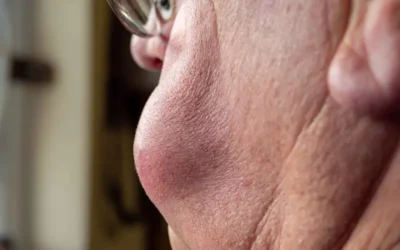It is believed that COVID-19 poses higher risks for the elderly and people with severe asthma, immunodeficiency and other conditions that compromise their immunity. The immune system helps protect the body from antigens such as bacteria, viruses, toxins, cancer cells, and foreign blood or tissues from another person or species. Immunodeficiency disorders compromise the immune system partially or fully compromised. These disorders can be primary or secondary: primary immunodeficiencies occur due to genetic defects, and secondary immunodeficiencies are the result of environmental factors, such as HIV/AIDS or malnutrition. Medical billing companies help clinicians determine the appropriate codes to report immunodeficiency diagnosis and services rendered on claims.
Primary immunodeficiencies (PID) – Signs and Symptoms
PIDs affect men, women and children. Most patients experience recurrent bacterial, viral or fungal infections, blood disorders, digestive problems, and systemic symptoms like fever and weight loss. Immune defects often lead to other complications such as autoimmune diseases, inflammatory conditions, organ dysfunction, and cancer. Mild forms of primary immunodeficiency may remain undetected for years. On the, very severe types are identified soon after a baby with the condition is born. For many PIDs, treatment is focused on boosting the immune system.
More than 400 types of immunodeficiency disorders have been identified. Ten immune deficiency diseases being studied by the National Institute of Allergy and Infectious Diseases (NIAID) are:
- Autoimmune lymphoproliferative syndrome (ALPS) – a rare immune disorder first that can cause autoimmune problems such as low levels of red blood cells, clot-forming platelets, and infection-fighting white blood cells.
- Autoimmune polyglandular syndrome type 1 (APS-1) – causes various types of symptoms, including autoimmunity against different types of organs and increased risk of a fungal infection caused by Candida yeast called candidiasis.
- BENTA Disease – a rare genetic disorder of the immune system caused by mutations in a gene.
- Caspase Eight Deficiency State (CEDS) – a very rare genetic disorder of the immune system caused by mutations in a gene, CEDS causes an enlarged spleen and lymph nodes, recurrent sinus and lung infections, recurrent viral infections, and a low level of infection-fighting antibodies.
- CARD9 Deficiency and Other Syndromes of Susceptibility to Candidiasis: CARD9 deficiency poses increased risk of Candida infections of the central nervous system.
- Chronic Granulomatous Disease (CGD): CGD is caused by mutations in one of five different genes.
- Common Variable Immunodeficiency (CVID): CVID causes frequent bacterial and viral infections of the upper airway, sinuses, and lungs.
- Congenital Neutropenia Syndromes: A group of disorders present from birth and characterized by low levels of a white blood cell necessary for fighting infections.
- CTLA4 Deficiency – a rare disorder that severely impairs the normal regulation of the immune system.
- DOCK8 Deficiency: a rare syndrome characterized by lower-than-normal numbers of immune cells and abnormalities cause recurrent viral infections of the skin and respiratory system.
Immunodeficiency Disease ICD -10 Codes
- D71 Functional Disorders of Polymorphonuclear Neutrophils
- D80 Immunodeficiency with predominantly antibody defects
- D81 Combined Immunodeficiencies
- D81.8 Other Combined Immunodeficiencies
- D82 Immunodeficiency Associated with other major defects
- D83 Common variable Immunodeficiency
- D84 Other Immunodeficiencies
- D89 Other disorders involving the immune mechanism, not elsewhere classified
- D89.8 Other specified disorders involving the immune mechanism, not elsewhere classified
New ICD-10 Codes in 2020
Added codes for fiscal year 2020 as listed by Beckers Hospital Review include:
- D81.3 Adenosine deaminase deficiency, unspecified
- D81.31 Severe combined immunodeficiency due to adenosine deaminase deficiency
- D81.32 Adenosine deaminase 2 deficiency
- D81. 32 Other adenosine deaminase deficiency
COVID-19 – ACAAI Recommendations for Immunodeficiency Patients
In a recent statement, the American College of Allergy, Asthma & Immunology (ACAAI) noted that elderly patients and patients with severe asthma, immunodeficiency and other chronic conditions that compromise the immune system are most susceptible to increased morbidity and mortality from viral infections in general The ACAAI recommendations for treating Asthma, Allergy, and Immune Deficiency Patients in the context of the novel coronavirus are as follows:
- All immune deficiency patients, especially those with asthma should remain on their medications.
- Asthma patients taking inhaled corticosteroids (ICS) should be advised to continue these medications (a 2014 study showed that they prevent or reduce asthma exacerbations).
- Utmost importance should be given to optimal control of severe asthma patients as they are at an increased risk to COVID-19 infection.
Asthma patients should be instructed to adhere to the general healthcare recommendations to reduce risk of COVID-19 such as avoiding contact with persons who are sick, hand washing, using an alcohol based sanitizer, etc.
Many patients are asking their physicians for coronavirus guidance. In a recent email sent to his patients, John G. Boyle, President of the U.S. Immune Deficiency Foundation said that while patients want specific recommendations, the IDF does not have a “one-size-fits-all advice” to give. As each patient’s experience with COVID-19 will vary with their diagnosis, they should consult their physician about their concerns (www.cslbehring.com).
As they focus on addressing patient concerns, medical billing outsourcing is a practical strategy for physicians to report diagnosis procedures, and services on claims.



